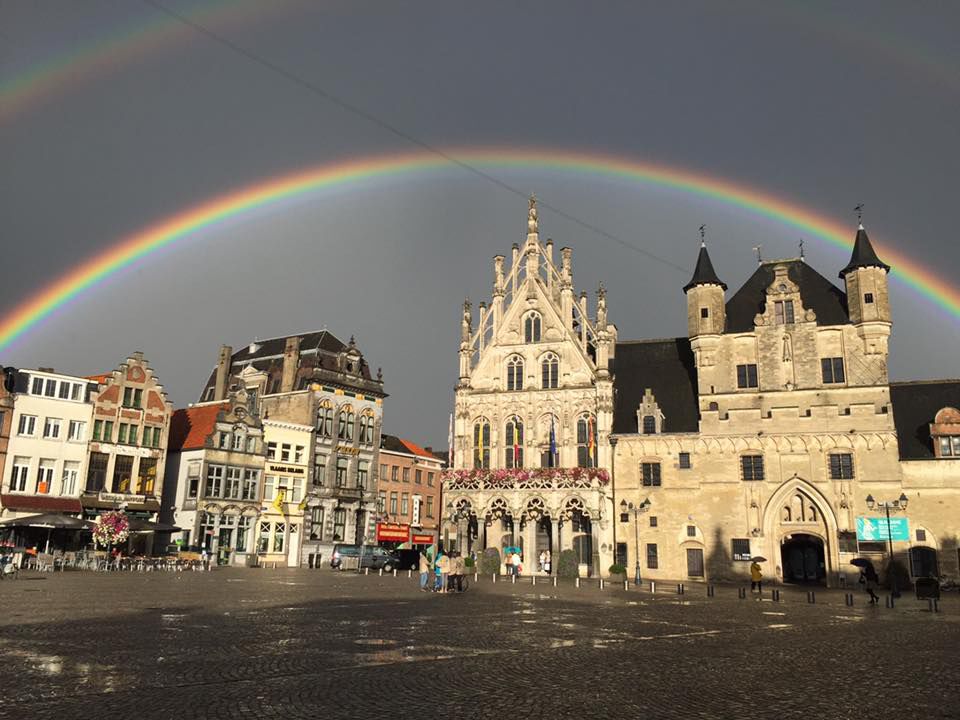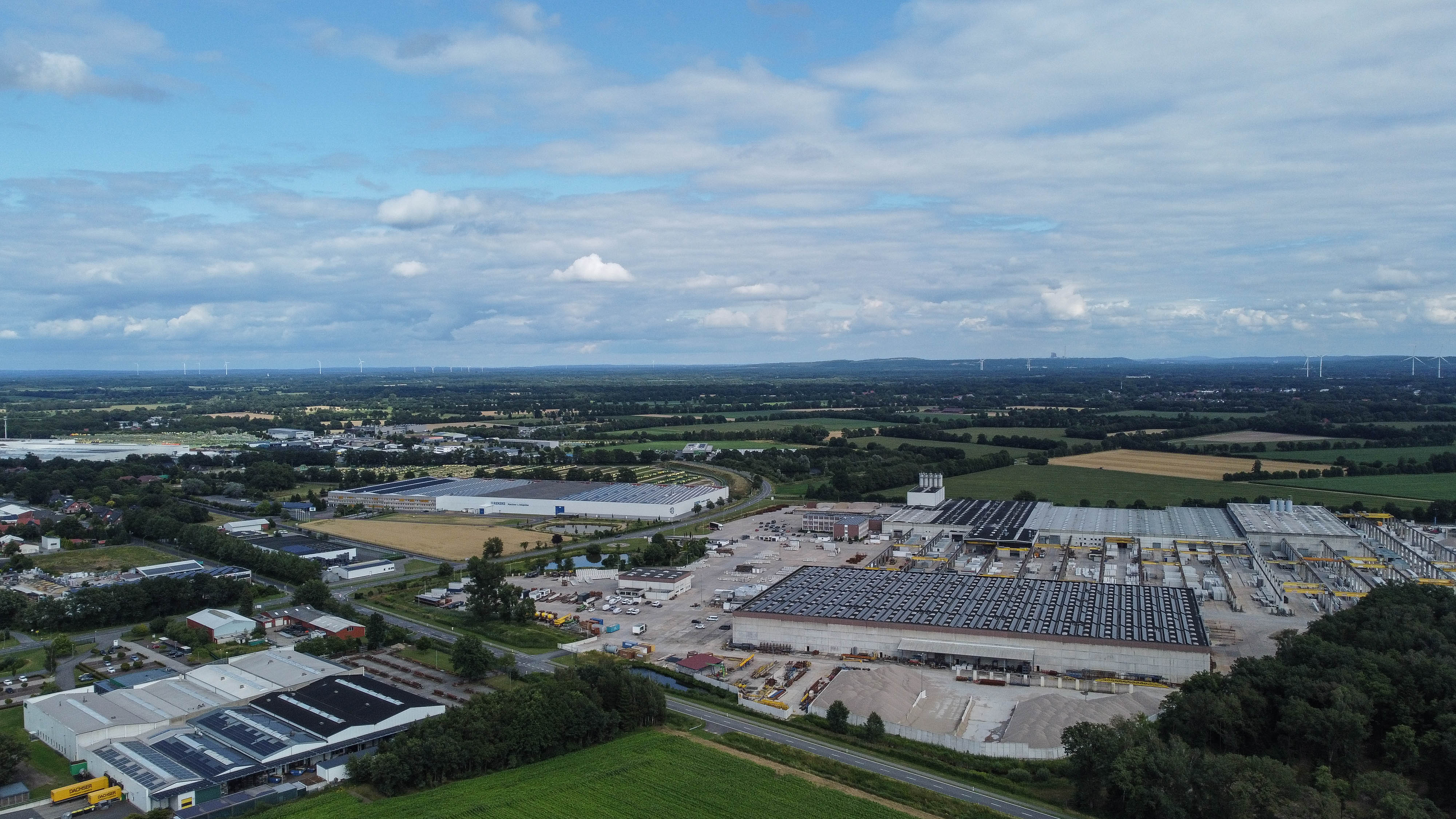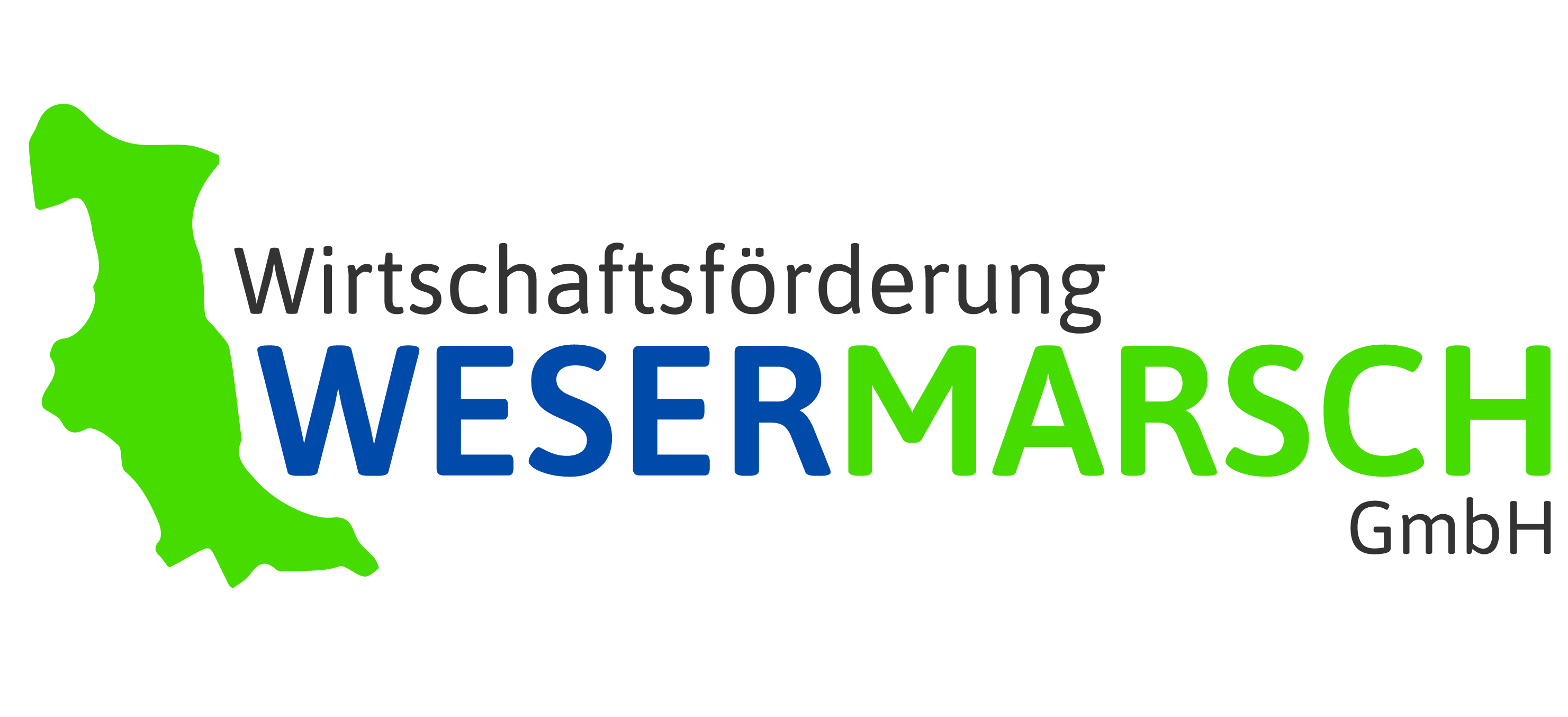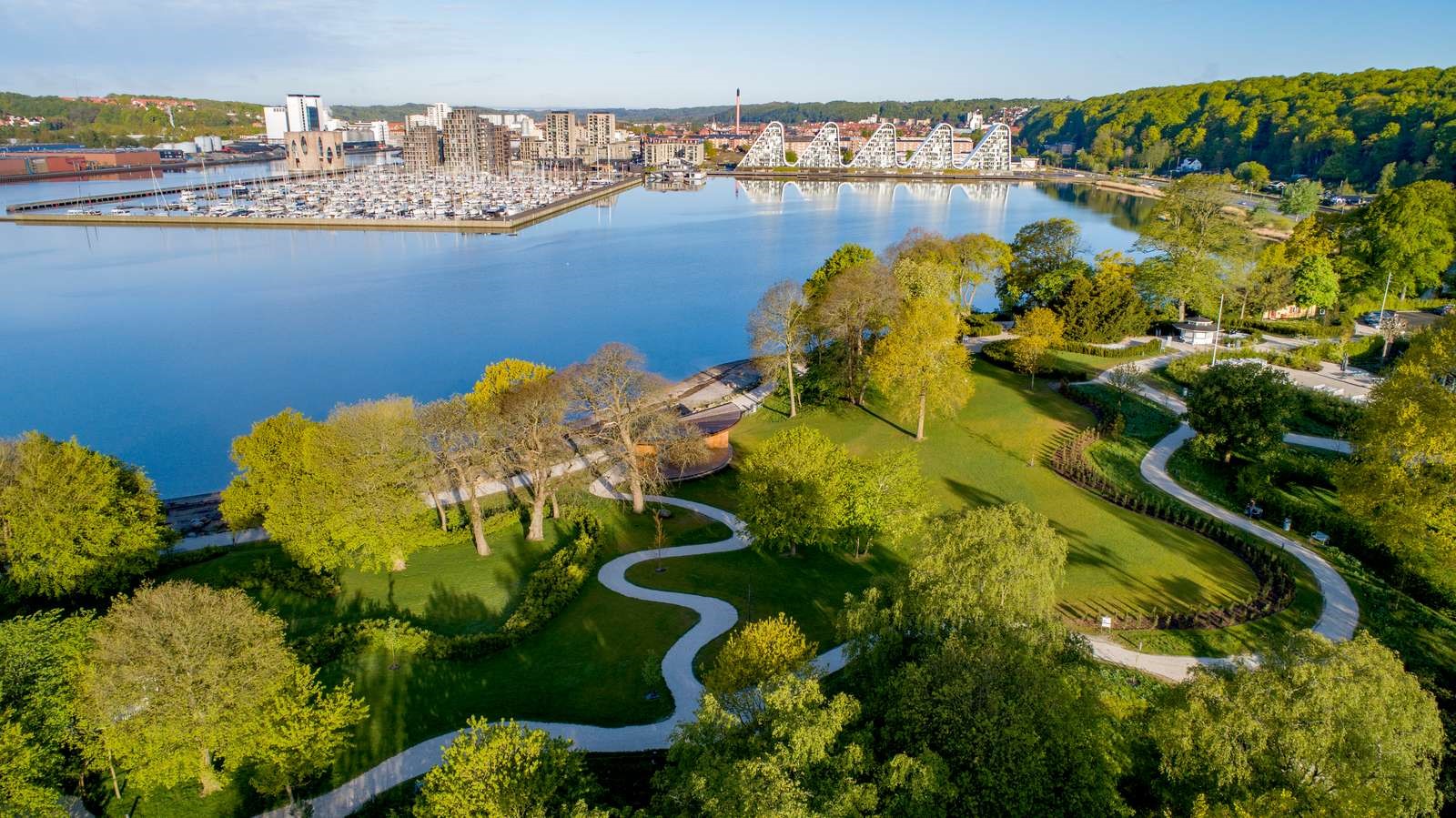The Province of Drenthe is a regional authority responsible for spatial planning, energy strategy, environment, nature, and regionaleconomy. Drenthe is a frontrunner in the Netherlands regarding the support of bottom-up business development and self-organization.

Industrial sites in Drenthe vary from large scale chemical production to small scale manufacturing and logistics parks. The Province has a longstanding relationship with many of these and, therefore, is in an ideal position to support sites with the challenges they face in terms of the transition to green renewable energy, net congestion and the effects of rising energy prices.
In GRITH , the Province collaborates with Dutch Tech Zone, and the industrial sites Leeuwerikenveld, Bargermeer, Bedrijventerreinen Borger Odoorn, De Wieken Hoogeveen and Bloemakkers Aa en Hunze. Stenden University is also involved as knowledge partner.
On-site organization
As experienced Lead Beneficiary and initiator of the project, Drenthe is not only responsible for the overall management and coordination but also actively invites industrial sites from the region to participate in design and development events in allwork packages, thus contributing to new, transnational solutions. Within the GRITH consortium the Province jointly investigates how to foster the on-site organization of the energy transition, which technical solutions can be implemented locally and how to operate these efficiently. Learning about different national and regional policies and regulations provides a broader perspective.
Climate Agenda
The implementation of these solutions in Drenthe will contribute to the regional climate agenda and help meet the goals of the National Climate Agreement. Furthermore, participation in Green Renewable Industrial Transition Hotspots will strengthen the economic and innovative profile of Drenthe.
Contact us GRITH | Interreg North Sea
The Municipality of Emmen has a rich history in the transition from fossil to renewable energy. Initially a peat extraction area in the 19th Century, the discovery of oil and gas in the region led to a heightened industrialization. Now the challenge is to reduce CO2 emissions by more than half by 2030. This requires more than just the production of renewable energy, but also the rapid expansion of sustainable energy sources, innovation and an integrated system perspective regarding several major societal questions.

The Municipality is continuously making connections - using available instruments to phase out fossil energy and develop renewable energy opportunities for local industry. While the industrial sector has set its own targets in the National Climate Agreement, the local authority is leading the development of a joint agenda which includes both public and private goals.
Extensive cooperation
In the GRITH project, the Municipality of Emmen contributes its knowledge, experience and a considerable network surrounding renewable energy generation and energy systems in industrial (chemical, manufacturing, SME) and greenhouse horticultural areas. There is also an extensive cooperation with other government organizations and grid operators.
More sustainable industries
Industry and greenhouse horticulture account for the largest share of energy consumption in Emmen municipality. Making these industries more sustainable is a major task for companies and governments and requires, amongst other things, the smart linking of industrial business processes with the production and sharing of renewable energy. Emmen is working on large-scale solar energy generation using the available roof space. However, grid congestion is currently a limiting factor and innovative solutions are needed to enable a 100% self-sustaining energy system that electricity, so that combats grid dependency.
Renewable energy generation & distribution
Under WP2, 3 & 4 Emmen contributes a pilot project setting up and implementing solutions around the generation of renewable energy, distribution systems and/or energy sharing between companies. By cooperating with other EU partners, companies from Emmen gain access to an extended network in the North Sea region. Locally, Emmen collaborates with industrial sites and SMEs..
Contact person:
Jaap Lobbezoo J.Lobbezoo@emmen.nl

Mechelen stands proudly as one of Flanders' leading cities and is celebrated for its commitment to sustainability. At the heart of this dedication lies an ambitious local sustainable heat strategy that explores a multitude of renewable heat sources, including geothermal and aquathermal energy, to secure a greener future for the city.

Mechelen is now ready to take the next big step! The City is determined to establish a comprehensive local framework, encompassing policies and support, that will pave the way for groundbreaking heat projects fuelled by renewable energy. Goal is to engage the citizens, as well as inspire local entrepreneurs and industrial sites to actively participate in the green revolution.
A beacon of promise on this sustainability journey is Klimaan - a thriving local energy cooperative which has flourished in recent years, empowering citizen participation while also investing in local renewable energy initiatives. Mechelen is currently engaged in a Life project in partnership with Klimaan, focusing on energy cooperatives. The insights and best practices gained from this collaboration will prove invaluable in engaging and activating industrial stakeholders and feed into GRITH.
Mechelen's Vital Role in GRITH
At the heart of the GRITH project, Mechelen plays a pivotal role as a dedicated partner committed to collaboration, knowledge sharing, and leveraging expertise gained from industrial pilot initiatives.The city boasts two promising locations for the development of large-scale renewable and/or aquathermal energy infrastructure: the bustling business area of Mechelen North and the brownfield development site at Ragheno. Additional opportunities are being explored to harness solar energy and share it within the industrial site of Mechelen South. The primary focus within the GRITH project will be the transformation of business area Mechelen North.
To unlock the full potential of these initiatives, Mechelen is taking proactive steps to convene stakeholders and compile a comprehensive overview of the demand side. The gathered data will be closely aligned with the technical potential for renewable energy, serving as the foundation for the development of innovative business models. The City will also engage in negotiations aimed at bringing these projects to fruition.
Within the framework of the GRITH project, Mechelen is dedicated to crafting a strategic approach, acquiring insights into effective business models, and accumulating valuable experience. Leveraging its position as a neutral intermediary, the City aspires to facilitate the transformation of industrial hotspots, effectively serving as an energy broker in this exciting journey towards sustainability.
Anticipated Benefits
Mechelen envisions a multitude of benefits stemming from its participation in the GRITH project:
- Enhanced Heat Strategy for Industrial Sites: This project provides a unique opportunity for Mechelen to refine and test its heat strategy, particularly with a focus on industrial sites. Given the significant potential of industrial areas to contribute to CO2 reduction, involvement in GRITH stands to expedite progress toward our ambitious goal of achieving climate neutrality by 2030.
- Accelerated CO2 Reduction: Industrial sites wield substantial influence in the effort to reduce CO2 emissions. By actively engaging in this project, Mechelen can accelerate its journey toward realizing substantial CO2 reduction targets, aligning with our commitment to combat climate change.
- Expertise Pooling: As a mid-sized city, assembling a broad and diverse group of experts independently is challenging. GRITH offers the invaluable opportunity to collaborate with other cities, pooling expertise and sharing knowledge. This cooperative approach enables Mechelen to strengthen its capabilities as an energy broker and foster further expertise development.
Extensive Experience in European Projects
Mechelen wholeheartedly believes in the significant benefits of European collaboration and, with a dedicated strategic department, has a rich history of active participation in numerous EU initiatives, contributing to the region's progress and sustainability Explore these projects at www.mechelen.be/europese-projecten.
Mechelen's involvement in the GRITH project promises to yield tangible benefits, from advancing our heat strategy to bolstering our role as an energy broker and, most importantly, contributing significantly to our carbon reduction objectives in the race toward a climate-neutral future by 2030.
Contact person:
Arnout Ruelens arnout.ruelens@mechelen.be

The city of Borås is situated in the south western part of Sweden. Borås has approximately 115,000 citizens and hosts the largest amount of e-commerce enterprises in Sweden. Borås also has a long history as a large regional textile and production industry. Several research institutes, a university, and merchant and commercial companies together contribute to the development and profile of the city, where cooperation and collaboration is easily at hand.

As a city with large e-commerce businesses, Borås has many companies located in nearby industry areas, whereby Viared is the largest area hosting about 180 companies. Many companies have their logistic centers and storage at Viared.
Energy cooperation, business models
Within the frame of the GRITH project, Borås wants to research, explore and develop joint solutions for energy cooperation among the companies here, in order to stimulate and multiply the supply of solar energy, with business models that can be transferred to other areas as well as into the planning of future industrial areas. The overall goal is to increase the supply of renewal energy within the region.
Borås is the largest e-trade city in Sweden and the Nordic countries. Strong positive growth regarding population and industry requires close cooperation. Both citizens and companies demand the electrification of all inbound and outbound terminal activities, covering not just the inner city but also the huge logistics parks operating within the e-trade sector. Securing fossil free energy is of high priority for current and future developments on all fronts. Performed pre-feasibility studies in terms of solar energy potential strongly advise these techniques and recommend a joint approach from the companies with extremely large roof areas. Both the City and the companies are ready and eager.
Sharing knowledge, insights & results
Borås will actively join all work packages in GRITH. The main role will be to use the insights gained and the shared results from this transnational cooperation to feed into the organized collaboration between the City and the e-trade companies. In WP1 Borås and associate knowledge partner RISE will build on the assessment of renewable energy potential of the Viared Industrial Park. In WP2 & 3 Borås will contribute to the Next Generation Business Model and will investigate the Swedish legal context. In WP4 Borås will work with Viared and other Industrial Parks on the development of on-site renewable energy systems.
The GRITH project is run by the Department for Business Development within the City of Borås.

Pôlénergie was founded to accelerate the energy transition and decarbonization in the region Hauts-de-France. It does so through the targeted support of private industries and public structures at both local and regional level, thereby stimulating intercommunal and interactive collaboration.
Polénergie translates the energy transition and decarbonization goals into economic opportunities for businesses by finding the best technical solutions from an energy perspective, developing a strong business case and finding the means to invest.

Pôlénergie works with a large group of local and regional, public and private stakeholders in every important economic sector of Hauts-de-France (iron & steel, glass, construction, energy production and transportation, etc.). Important knowledge partners are, among others, Centrale Lille, Université La Catholique de Lille, UniLaSalle andUniversité du Littoral Côte d’Opale.
Extensive experience, broad understanding
With a membership of more than 200 businesses and territiories, Pôlénergie contributes to the Green Renewable Industrial Transition Hotspots project with a broad understanding of industrial-related analysis and a highly skilled experience with mapping resources, both of which are especially relevant to WP1. The organization's background in developing relevant business models offers valuable input to strengthen the GRITH business cases while Pôlénergie's extensive toolbox and communication channels will greatly benefit the consortium.
Made-to-measure solutions
The ongoing success of industrial transition on several sites in the Hauts-de-France region feed into the project as best practice examples in terms of stakeholder engagement, made-to-measure technical solutions and economic models.
Participation in GRITH offers Pôlénergie access to collaborations with other public-private partnerships. By jointly driving the energy transition on industrial sites forward in the North Sea Region, the desired upscaling and acceleration of CO2 reductions becomes more achievable. This is completley in line with the Pôlénergie mission.
Contact:
Eirik Steen eirik.steen@polenergie.org
Gregory de Smidt gregory.desmidt@polenergie.org

The District of Emsland is located in north-western Germany directly on the border with the Netherlands. Around 340,000 inhabitants live in 19 municipalities in this rural area. The largest towns are Lingen (Ems), Meppen and Papenburg. Until well into the 1970s agriculture dominated working life. Today, modern industrial and craft enterprises characterize the economic situation in Emsland.

A diverse mix of sectors with many medium-sized specialist businesses has successfully devolped here. This business environment is coupled with a number of large industrial companies concerned with wood and plastics processing, machinery, vehicle and shipbuilding and the energy industry.
Specific challenges
While most companies are generally located on attractive industrial sites, the energy transition requirements present very specific challenges. Above all, security of supply and the assurance of affordable energy are essential aspects for these companies. Industrial sites also offer great opportunities to become a major contributor to the shift from fossil to renewable energies. To this end, new technical solutions for energy efficiency and optimisation, as well as solid business models for the cooperative generation, distribution and storage of renewable energies must be introduced, invesitgated and implemented.
Customized solutions
This is where the GRITH project in the Emsland district comes into play. The intention is to support the companies from three chosen industrial sites in the municipalities of Rhede (Ems), Meppen and Spelle with location-specific, customized solutions for the energy transition. Based on the analysis of the local situation and the individual and collective needs of the participating companies, realisable business models are developed for favoured technical solutions for the generation, distribution and storage of renewable energies. Legal and regulatory requirements are also taken into account. The end result is the intended realisation of three pilot projects by the participating companies in the industrial sites and the transfer of these model examples to other municipalities of the Emsland district.
Contact:
Holger Spelsberg - Holger.Spelsberg@emsland.de>
Ralf Wellmer Ralf.Wellmer@Emsland.de

The district of Wesermarsch (Wesermarsch County) is characterized by a long lasting tradition in terms of the use of green energy solutions. The historically based dike construction at the North Sea shore and some of the worlds leading shipyards at the river Weser contribute to the Wesermarsch‘s identity till now. Today, Wesermarsch County is strongly focused on further elevating the already high usage of wind energy and PV-based energy to tackle the transition and to achieve the targets of a fully sustainable green region.

Photo: Eckhard Berger
Future focus on green hydrogen
Regarding the future, production and usage of green Hydrogen will be a central pillar of the power supply of the whole region. Characterized by a high density of industrial companies, especially in the northern part of Wesermarsch, and an enormous energy consumption , definite solutions for a green energy transition must be implemented as soon as possible.
Extensive network
Therefore, Wesermarsch County is eager to share experiences with other project partners in GRITH and collaborating in solving the highly ambitious task of a green energy transformation. Furthermore, Wirtschaftsförderung Wesermarsch is backed by an extensive regional and national network of large industries, SMEs, political stakeholders, energy clusters, R&D institutes and universities such as the Nordic Sky Business School.
Contact:
Jörg Wilke info@joergwilke.de
Tobias Busch tobias.busch@wf-wesermarsch.de

Vejle Municipality is a public authority in Denmark with a population of 110,000, making it the country's fifth largest municipality. The municipality places a strong emphasis on three key areas in relation to CO2 reduction: energy, transportation, and agriculture. Building on a tradition of environmental engagement, the municipality actively participates in international collaborations, such as the 100 Resilient Cities initiative.

Vejle's primary goal regarding CO2 reduction is climate neutrality by 2050, achieved through sustainable solutions in partnership with industry associations and private stakeholders. The Municipality is committed to forging alliances and collaborating closely with businesses to implement environmentally responsible practices. By leveraging partnerships and engaging with relevant sectors, Vejle Municipality aims to play a pivotal role in achieving its ambitious climate goals.
The Green Business Guides
The authority supports businesses in their journey towards sustainability through ‘The Green Business Guides’ initiative which focuses on helping companies to address challenges such as high energy costs, CO2 reduction, and solutions that support sustainability. Currently, the Green Business Guides are engaged in multiple activities which include circular economy practices, sustainability reporting, CO2 accounting, CO2 reduction in value chains (Scope 3), and, notably, the focus is directed towards establishing sustainable energy systems for municipal businesses. This collaborative effort involves partnerships with the University of Southern Denmark (SDU) and private consultants.
Establishing energy communities
Within the GRITH project, Vejle contributes a broad experience stemming from their industry network for energy transition collaborations. This partner will develop an easy-to-use tool to identify and evaluate suitable renewable energy solutions and measure increasing uptake. Work will also involve industry actors, a research institution, and local businesses in the co-creation of business models for on-site renewable energy systems. Vejle engages the Give, Vejle Havn, Vejle N, Vejle S industrial areas with a view to establishing local energy communities, thereby facilitating, supporting and providing third-party energy counselling which investigates renewable solutions for each community based on energy consumption, energy screenings and the assessment of technical opportunities. This will also demonstrate that supporting the establishment of industrial energy communities can accelerate the energy transition for local communities.
Synergies
Vejle Municipality and local companies benefit greatly from international collaboration, learning more from other GRITH partners about their regional renewable energy solutions and symbiosis while also providing the consortium with national and regional business network opportunities. In terms of synergy, Vejle’s participation in North Sea Region Data for All project, (also in collaboration with the Province of Drenthe) means that open data for CO2-mapping can be used to develop and secure businesses CO2-reduction goals.
